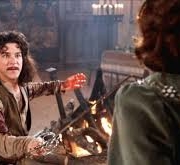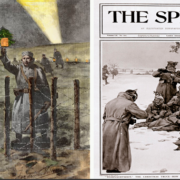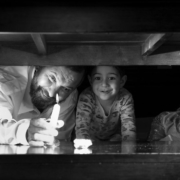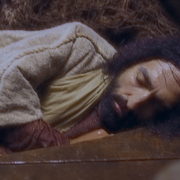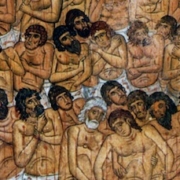A bell buoy rings only during storms. The beating of the waves and wind bring out the music that is within it, so too do trials reveal what is inside a person. – J. C. Ferdinand Pittman
How true this was for the trials and beatings of Jesus that preceded His crucifixion. It’s easy to minimize the exhortation of Hebrews 13:13-14 Let us then go forth [from all that would prevent us] to Him outside the camp [at Calvary], bearing the contempt and abuse and shame with Him. For here we have no permanent city, but we are looking for the one which is to come. That is until we begin to realize to “meet Jesus outside the camp” requires that we persevere through our own trials. As we prepare to celebrate Resurrection Day let us not forget: it is a day of celebration, but also a reminder to return to our First Love. He Who loved us with a furious passion, impossible to comprehend from human perspective, had no limitations or boundaries set other than what His body, and Spirit could endure.
From 12 – 6 AM, Jesus endured 6 trials: 3 Jewish, 3 Roman. The Jewish trials were meant to determine if Jesus was guilty of blasphemy, and the Roman Trials to determine if Jesus was guilty of treason. And it’s interesting to note that during this time Passover lambs were being examined to see if they had spot or blemish. Yet, our Passover Lamb, Jesus, passed the test when He was examined and was found to be without spot, or blemish.
Not only was Jesus examined but He was mocked, beaten, and ridiculed in ways that are difficult to imagine. Three Greek words were used to describe the beatings He underwent: Buffet, Smote, and Strike. Each word has a different meaning in the original Greek. To buffet someone means that you rap them with your fists. To smote someone implied that the way you struck them was similar to being flayed, scourged, or thrashed; often used when referring to the skinning of an animal. Scripture does not specify in what manner this was administered but it could have been accomplished through the use of the fists, rods, or both. The final word, to strike, involves slapping, or beating repeatedly with hands or fists. Again Scripture does not give us the details but we can imagine that this involved striking Jesus in the face, mouth, nose, eyes and body. Add to this the suffering Jesus was already experiencing through sweating drops of blood in the Garden of Gethsemane. A condition known as hematidrosis, or hemohidrosis. This documented medical condition is caused by the tiny capillaries in the sweat glands rupturing, mixing their blood, with perspiration. In this condition the skin becomes extremely tender, fragile, and painful to touch. Just the slightest touch would cause bruising. This ordeal in the Garden alone would have left Jesus feeling dehydrated, along with shock, and physical exhaustion. This is why the writer of Hebrews reminds us: Just think of Him Who endured from sinners such grievous opposition and bitter hostility against Himself [reckon up and consider it all in comparison with your trials], so that you may not grow weary or exhausted, losing heart and relaxing and fainting in your minds. You have not yet struggled and fought agonizingly against sin, nor have you yet resisted and withstood to the point of pouring out your [own] blood. (Heb. 12:3-4)
As we draw near to the celebration of Jesus’ Resurrection let us not forget to walk with Him through the trials that purchased our salvation, and the purpose of them. C.H. Spurgeon in a sermon entitled Feathers for Arrows reminds us: In the ancient times, a box on the ear given by a master to a slave meant liberty, little would the freedman care how hard was the blow. By a stroke from the sword the warrior was knighted by his monarch, small matter was it to the new-made knight if the royal hand was heavy. When the Lord intends to lift his servants into a higher stage of spiritual life, he frequently sends them a severe trial; he makes his Jacobs to be prevailing princes, but he confers the honour after a night of wrestling, and accompanies it with a shrunken sinew. Be it so, who among us would wish to be deprived of the trials if they are the necessary attendants of spiritual advancement?
Throughout Scripture we are exhorted to ascend the Hill of the Lord. But never forget that Hill led our Savior to Calvary, or Golgotha. Let us join Him in order that we too may have a glorious resurrection – hearing Him say to us, Well done My good and faithful servant! And never forget that the beating of the waves, and wind bring out the music that is within, as do the trials that reveal what is inside each of us.


